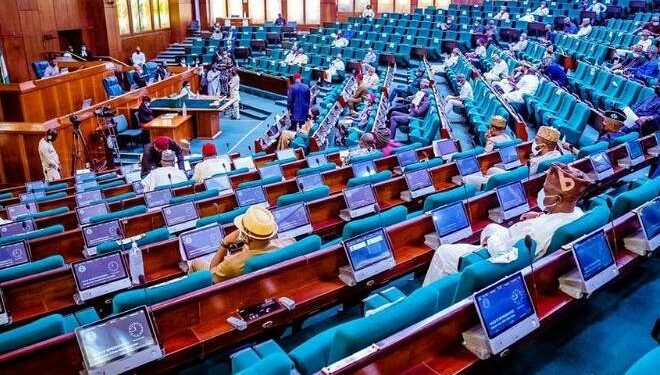The House of Representatives Committee on Public Accounts has made a bold move to ensure financial accountability in Nigeria’s federal agencies.
On Wednesday, December 18, 2024, the committee recommended the exclusion of 24 key agencies from the 2025 national budget.
Among those to be removed are high-profile bodies such as the Presidential Amnesty Programme, the Senior Special Assistant to the President on Sustainable Development Goals (SDGs), and the National Examination Council (NECO).
This recommendation is a response to these agencies’ persistent failure to account for their past budgets and internally generated revenue.
The decision was made during an extraordinary sitting of the Committee held in Abuja.
Hon. Bamidele Salam, the committee’s chair, explained the rationale behind the recommendation.
“The Financial Regulation empowers the National Assembly to exclude any Ministry, Department, or Agency (MDA) that fails to account for their previous appropriations,” Salam stated.
He further added that the delisting should serve as a reminder that financial accountability is not optional but a legal obligation.
As a result of the committee’s resolution, these 24 agencies have been excluded from the proposed 2025 budget until they present the required financial clarifications.
The move comes after repeated attempts by the committee to engage with the agencies in question.
Despite multiple invitations, many of these agencies failed to appear before the committee or submit the necessary documentation for their budget expenditures.
This action sends a clear message about the importance of transparency and accountability in government spending.
Among the agencies recommended for delisting are some of Nigeria’s most prominent federal institutions, including hospitals, universities, and development agencies.
The move to cut them from the budget is not taken lightly and reflects deep concerns over mismanagement and lack of financial transparency in these government entities.
For months, the committee has been sending invitations to these agencies to attend hearings and explain their financial operations.
However, many of them have either failed to appear or ignored the requests for documents that would explain how public funds were used.
In some cases, the agencies did not even respond to the committee’s summons, causing frustration among lawmakers who are tasked with ensuring public funds are spent effectively.
“Until these agencies appear before the committee and provide proper documentation, they will remain excluded from the 2025 budget,” Hon. Salam emphasized.
This recommendation is part of the committee’s broader efforts to curb corruption and ensure that taxpayers’ money is used for its intended purposes.
It also highlights a larger issue within Nigeria’s public sector: many agencies have been accused of financial mismanagement, and some have faced allegations of corruption.
The list of agencies affected includes some that are considered vital to Nigeria’s development, such as health institutions, educational bodies, and other critical services.
Despite their importance, these agencies have failed to prove that they are managing funds properly.
The decision to remove these agencies from the budget could lead to delays or disruptions in their operations, but the committee has made it clear that such actions are necessary for the long-term health of Nigeria’s financial system.
The committee’s actions have sparked reactions from various quarters.
Some lawmakers have applauded the move, calling it a much-needed step to promote financial discipline within the government.
Others have raised concerns about the potential impact on the services these agencies provide.
However, the committee has made it clear that accountability must come first, and only after agencies provide the necessary information will they be considered for inclusion in the 2025 budget.
This move is also seen as part of the larger push for budget reform in Nigeria.
The 2025 national budget is already under intense scrutiny, with lawmakers determined to ensure that the country’s financial resources are allocated efficiently and transparently.
In recent months, there has been growing pressure on the government to address the mismanagement of public funds, and this recommendation to remove agencies from the budget is part of that effort.
Nigeria’s national budget is a crucial tool for shaping the country’s development priorities, and any attempt to exclude agencies highlights serious concerns about governance and the management of public finances.
The push for transparency is also reflected in other actions being taken by the National Assembly, including calls for better oversight of the oil and gas sector, telecommunications, and other industries where corruption is often cited as a major problem.
Despite the criticisms, the committee’s leadership is standing firm on their decision to push for the delisting of these agencies, insisting that this is the only way to hold them accountable for their financial operations.

